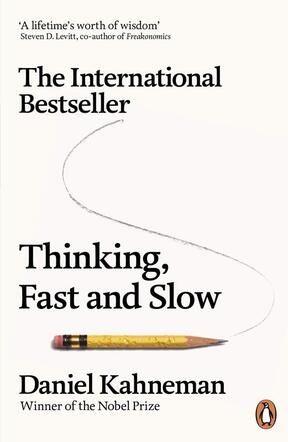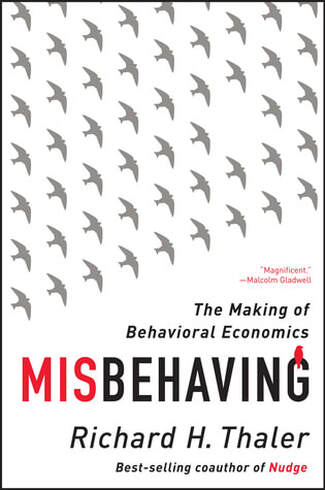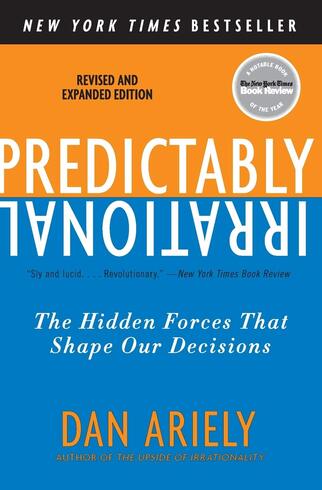ECONOMICS STUDY CENTER, UNIVERSITY OF DHAKA
Animal Spirits: How Human Psychology Drives the Economy, and Why It Matters for Global Capitalism4/20/2021 Author: George A. Akerlof and Robert J. Shiller  Synopsis by Sabiha Sharmin Eva Purchase Availability: Nilkhet, New Market, Aziz Super market, Amazon.com, Rokomari.com, MKBookhousebd, Bigglobooks, Bookspider BD, Tome BD [Customization available at Pustoq, The Book Basement, Booktique, Pathak Shomabesh] Price Range: BDT 200 - BDT 2500 Synopsis: ‘Animal Spirits’ is a term invented by the famous British economist John Maynard Keynes. He described Animal Spirits as a human emotion that affects consumer confidence and how people come to financial decisions in times of economic uncertainty. Prominent economists George A. Akerlof and Robert J. Shiller re-introduced Animal Spirit in terms of the modern economy and described its importance with how it is necessary for the government to take things into their own hands and control this spirit. The book comes in two parts. Part one is about the various ‘animal spirits’ that direct the ways in which we think about and act within the economy. In economics it is too often taken for granted that humans are ‘economically rational beings’ and they make logical decisions by nature. But Akerlof and Shiller wanted to take off that emerald glasses from everyone’s eyes and focus on the obvious - that people are not always rational and they constantly don’t consider the cost and benefits of their actions. It also illustrates that confidence, fairness in wages, irrational conclusions about money or ‘money illusion’, corruption, etc are all part of animal spirits. These behaviors can lead the market to failure.
1 Comment
Author: Daniel Kahneman  Synopsis by Faisal Quaiyyum Inan Purchase Availability: Batighor, Pathak Shomabesh, Boi Bichitra, Nilkhet, New Market, Aziz Super market, Amazon.com, Daraz.com, Rokomari.com, MKBookhousebd, BoiBazar.com, Bigglobooks, New Book Corner, Bookspider BD, Tome BD, SANAS ARTROOM [Customization available at Pustoq, The Book Basement, Booktique] Price Range: BDT 150 - BDT 2000 Synopsis: Thinking, Fast and Slow is regarded as one of the classiest books of knowledge which is incorporated with many areas of knowledge such as psychology, political science, philosophy, economics, statistics, etc. This book mainly consists of almost all the lifetime works of Daniel Kahnemann, the author of the book and Amos Tverksy. The book is considered as one of the most read behavioral economics books. The fourth part of the book on “Choice” mainly deals with behavioral economics. However, to get a better understanding of the theories, it is highly suggested to read the previous chapters because all chapters are interrelated. Author: Richard H. Thaler  Synopsis By Faisal Quaiyyum Inan Purchase Availability: Amazon.com, Daraz.com, Rokomari.com, Nilkhet, New Market, Aziz Super market, MKBookhousebd, BoiBazar.com, Bigglobooks, New Book Corner, Bookspider BD, Tome BD [Customization available at Pustoq, Pathak Shomabesh The Book Basement, Booktique] Price Range: BDT 200 - BDT2000 Synopsis: 'Misbehaving', considered as one of the pioneer books in shaping the behavioral economics discipline, is mainly a collection of Richard Thaler's main findings that overlap the discipline of economics and psychology during his long academic career. In this book, Thaler shows us how he has sought the understanding of economics by embracing human weaknesses, irrationalities, and peculiarities. Yes, he considered 'humans' as 'humans' instead of 'econs', the rational beings who just maximize their corresponding utilities by staying at various tangent points. Author: Dan Ariely  Synopsis by Faisal Quaiyyum Inan Purchase Availability: Nilkhet, New Market, Aziz Super market, Amazon.com, Daraz.com, Rokomari.com, MKBookhousebd, Bigglobooks, Bookspider BD, Tome BD, Pathak Shomabesh [Customization available at Pustoq, The Book Basement, Booktique] Price Range: BDT 300 - BDT 2000 Synopsis: Predictably Irrational by Dan Ariely precisely shows how the interactions of cognitive psychology and economics play a vital role in our everyday decision-making. Throughout the book, the writer challenges one of the most fundamental principles of economics - the rationality of an economic entity while decision-making by incorporating everyday experience with groundbreaking research. Ariely also argues that these irrationalities, caused by crooking our reasoning abilities through expectations, emotions, social norms, and other apparently illogical, invisible factors, are not random and fitful, rather structured, predictable and repetitive. In his personal blog, Ariely said, "From drinking coffee to losing weight, from buying a car to choosing a romantic partner, we consistently overpay, underestimate, and procrastinate. Yet these misguided behaviors are neither random nor senseless. They’re systematic and predictable—making us predictably irrational." |
